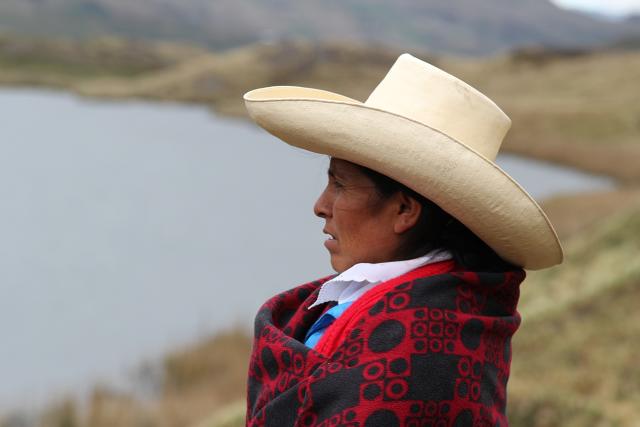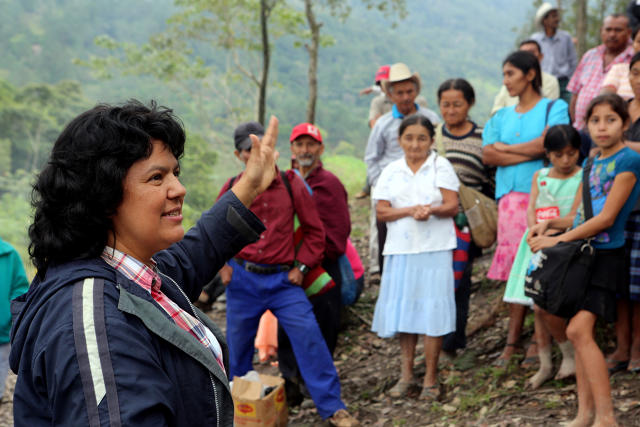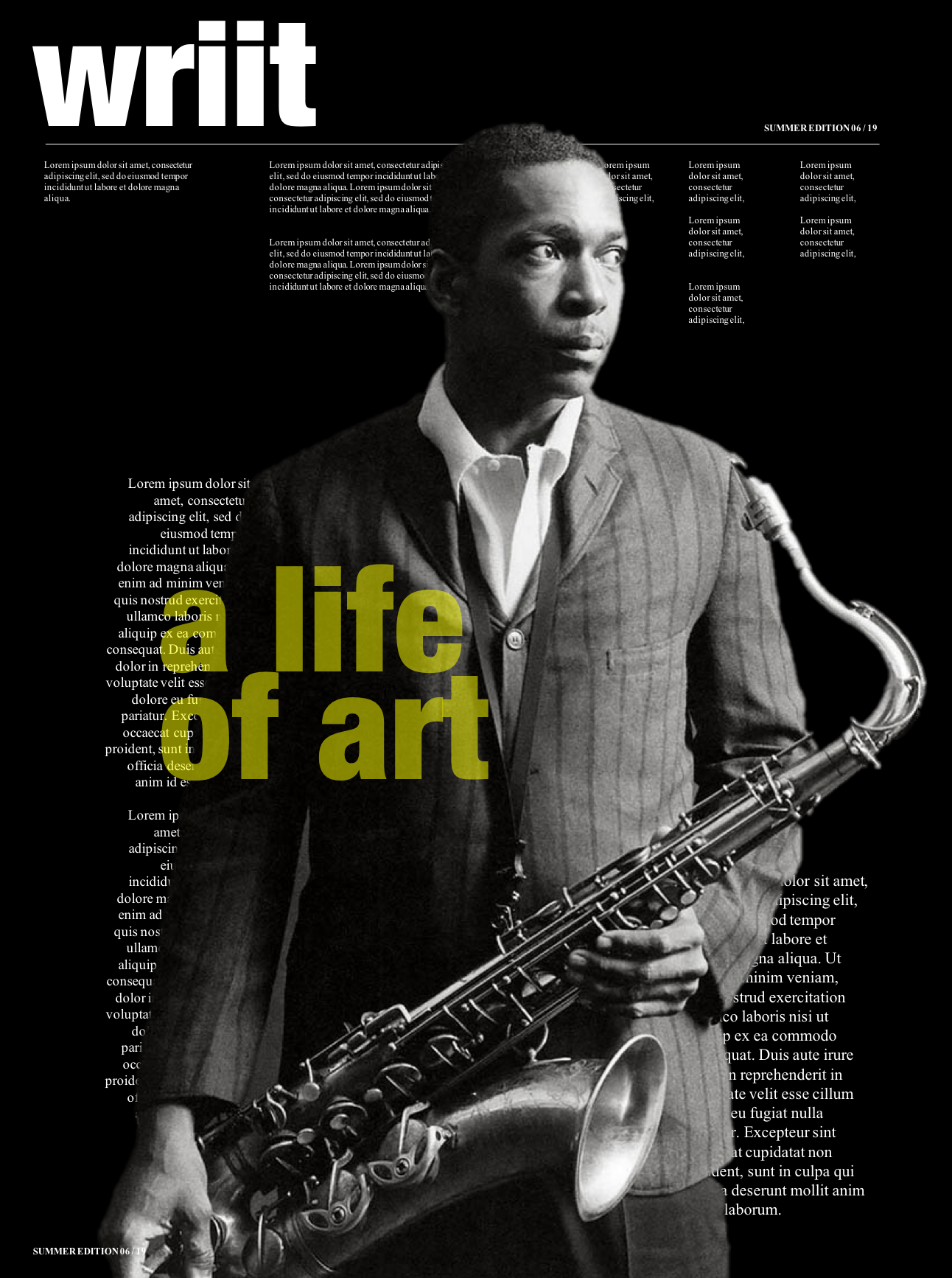Máxima Acuña, winner of the 2016 Goldman Environmental Prize—a global award for grassroots environmental activism—is constantly looking over her shoulder.
She fears for her life often, a lot like Berta Cáceres, a winner of last year’s Goldman Prize who was shot and killed in her home in Honduras in early March.
“Of course it is very worrisome, what happened with my comrade Berta. These companies are very powerful, I know that the same thing could happen to me,” Acuña tells Co.Exist through a translator.
Acuña lives in the remote northern highlands of Peru, not Honduras. The company she is battling is one of the world’s largest gold mining companies, whereas Cáceres had been fighting one of Latin America’s largest hydroelectric dam projects that would destroy the lands of the indigenous Lenca people.

But nevertheless both had faced similar situations. She and Cáceres are impoverished indigenous women in remote places, working to defend their land against the interests of corporate power in places where the rule of law is weak and there is little, if any, accountability for violence. After Cáceres’s death (her colleague Nelson Garcia was also murdered a few days later), those working closely with her were sadly not at all surprised. By that point, Cáceres had faced credible death threats and harassment for many years.
According to the organization Global Witness, environmental activists and “land defenders” are facing increasing dangers around the world. In 2014, the group found that at least 116 were murdered in 17 countries, almost double the number of journalists killed and an increase of 20% since 2013. The large majority of documented death are overall much higher than 10 years ago. The most dangerous region by far is Latin America, followed by Southeast Asia.
“It’s a worrying trend and a very significant trend,” says Adam Shapiro of Front Line Defenders, a group that provides security assistance to grassroots activists.
Environmental activists, and particularly indigenous activists, are often at particular risk of violence because they often live in remote regions, rather than big cities; they aren’t on Twitter to protest their treatment. And risks are increasing as the demand for natural resources grows and companies exhaust existing deposits. In Latin America particularly, there are powerful elites increasingly coming into conflict with disempowered groups in resource-rich areas where corruption runs rampant.
“The kind of opponent that environmentalists are facing is in many ways far more powerful than a government or a court,” Shapiro says.
Profiles in Courage
Two out of five of this year’s Goldman Prize winners illustrate these risks. Acuña, a grandmother, lives in the remote northern Peruvian highlands on an off-grid subsistence farm, which she and her husband purchased in 1994.
Her anonymous pastoral life changed in 2011, when representatives from mining companies knocked on her door and demanded she abandon her property to make way for a $5 billion mining and lake drainage project in the Cajamarca region. The project would turn several lakes into waste storage pits and wreak havoc on the ecosystem. Unlike some of her neighbors, she has refused to leave, and her case became known throughout Peru as others have protested the mine’s development. Her life has been a living hell ever since.
Despite a court ruling in her favor that she owned her land in 2014, she and anyone visiting her house are under constant surveillance by private security forces working for the mine developers, Colorado-based Newmont and the Peru company Buenaventura. They have killed her dogs, stolen her sheep, and destroyed her potato crops right before a recent harvest. Her family has been beaten.
“The aggression that we’ve been facing from these companies—they destroy whatever is in their way to destroy,” Acuña says. “Now, what’s happened too is that the company has put up these wire fences around the land, so they have us in their corrals—as if we’re in prison there—and so we don’t feel safe.”
Acuña’s situation is so precarious that the Inter-American Commission on Human Rights has called on Peru’s government to take precautionary measures to protect her safety, a relatively rare step it also took in Cáceres’s case. Very recently, says Acuña, the government promised to send police patrols to visit her property on occasion, but she feels this is far from enough—and far less than the constant police presence that protects mining interests.
Despite the danger, Acuña vows not to be intimidated and so does Leng Ouch, another 2016 prize winner from Cambodia. In a country where there is risk in speaking out, he has worked undercover, posing as a laborer, tourist, and driver, to catch illegal logging activities while the government looked the other way. In 2012, his colleague was killed and there have been other deaths—of a journalist and forest protectors—since. Now that everyone knows his face and his work has been on TV, Ouch must take measures to protect himself and his family. But he has also had success. In 2014, the government canceled 23 land concessions on 220,000 acres.
Both Acuña and Ouch hope the Goldman Prize and the international stage it brings can improve their security situations, and the prize works with its winners to help ensure that is the case. But nothing is certain, and this publicity wasn’t enough for Cáceres. “It is clearly not a bulletproof shield,” says David Gordon, executive director of the prize.

Justice for Cáceres?
Goldman hopes that Cáceres’s murder is a wakeup call. If there can’t be accountability in her high-profile case that has received international media coverage and has led to violent clashes in Honduras, then there is little hope for the activists who don’t even get a local news story when they are killed.
Groups are focusing on trying to pressure the Honduran government to allow an independent investigation by the Inter-American Commission on Human Rights. The government’s own investigation—while more than it does in most cases—has been highly suspect so far. There are also some calls for the United States to suspend some or all of its aid to the country.
Putting pressure on investors or foreign companies involved in massive projects that trample on human rights is also important. Several other indigenous activists working to block the Agua Zarca dam had been killed since 2013, but only after Cáceres’s high-profile death did two European investors in the project—the Dutch Financial Development Company and Finnfund—express their shock at the violence and back out of their involvement.
“We so often see that these land conflicts that are fueling threats to the environmentalists are being driven by foreign investors and foreign companies that are frankly taking advantage of weak judicial systems,” says Gordon.
Global Witness senior campaigner Billy Kyte says that foreign investors should be pressured to do real due diligence on projects, rather than just accept a company’s claim that local communities were “consulted.” “Oftentimes the first time communities hear about these projects is when they hear a chainsaw in their backyard.”
